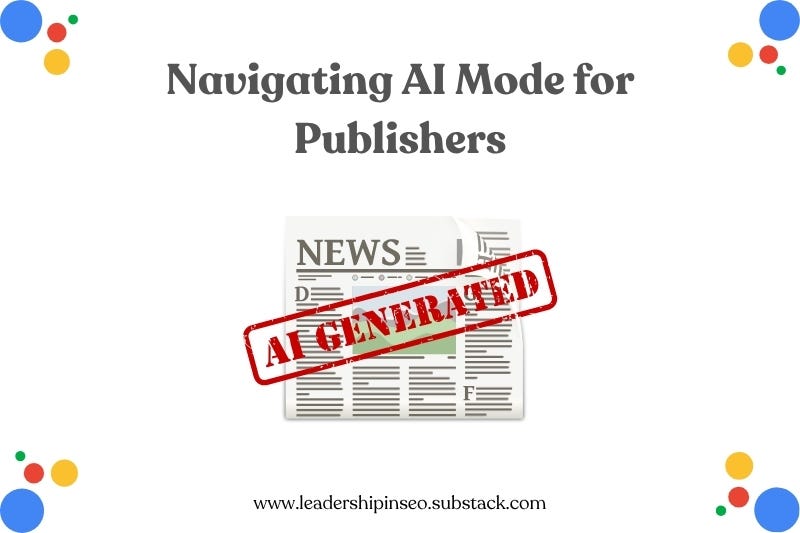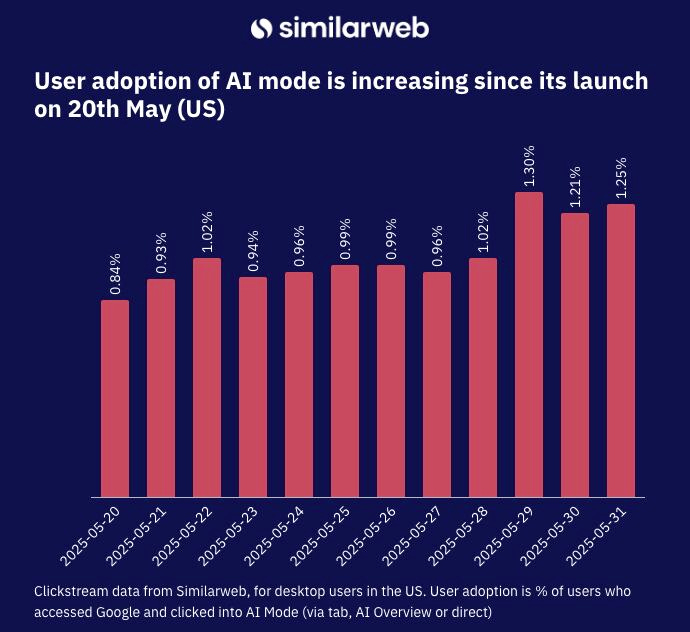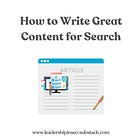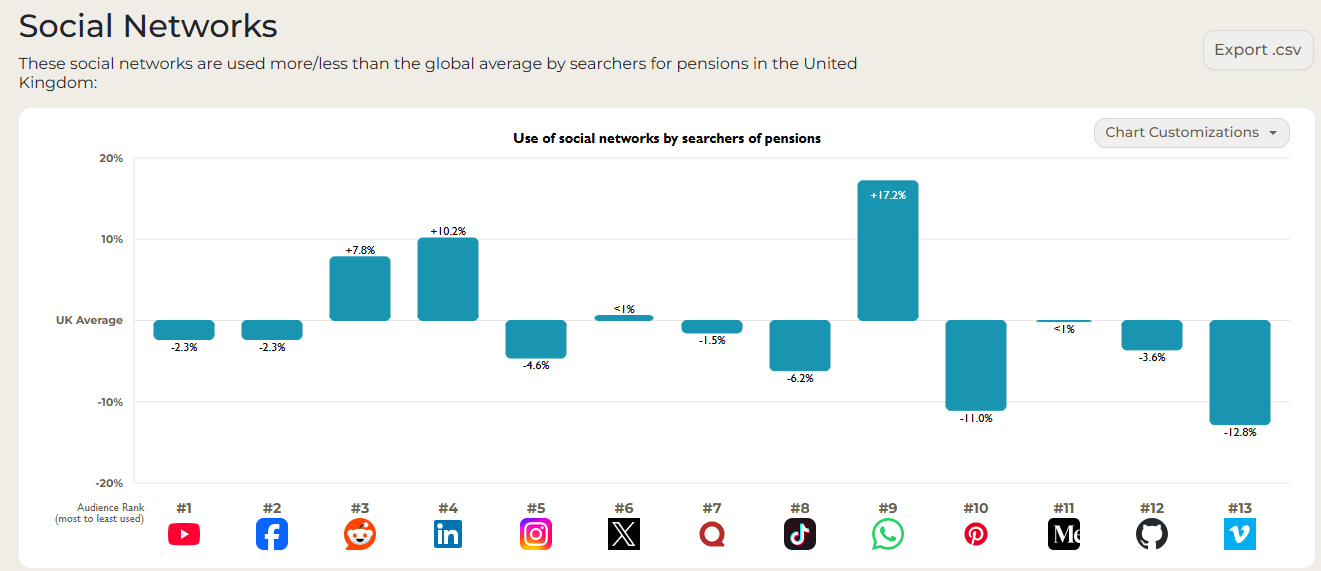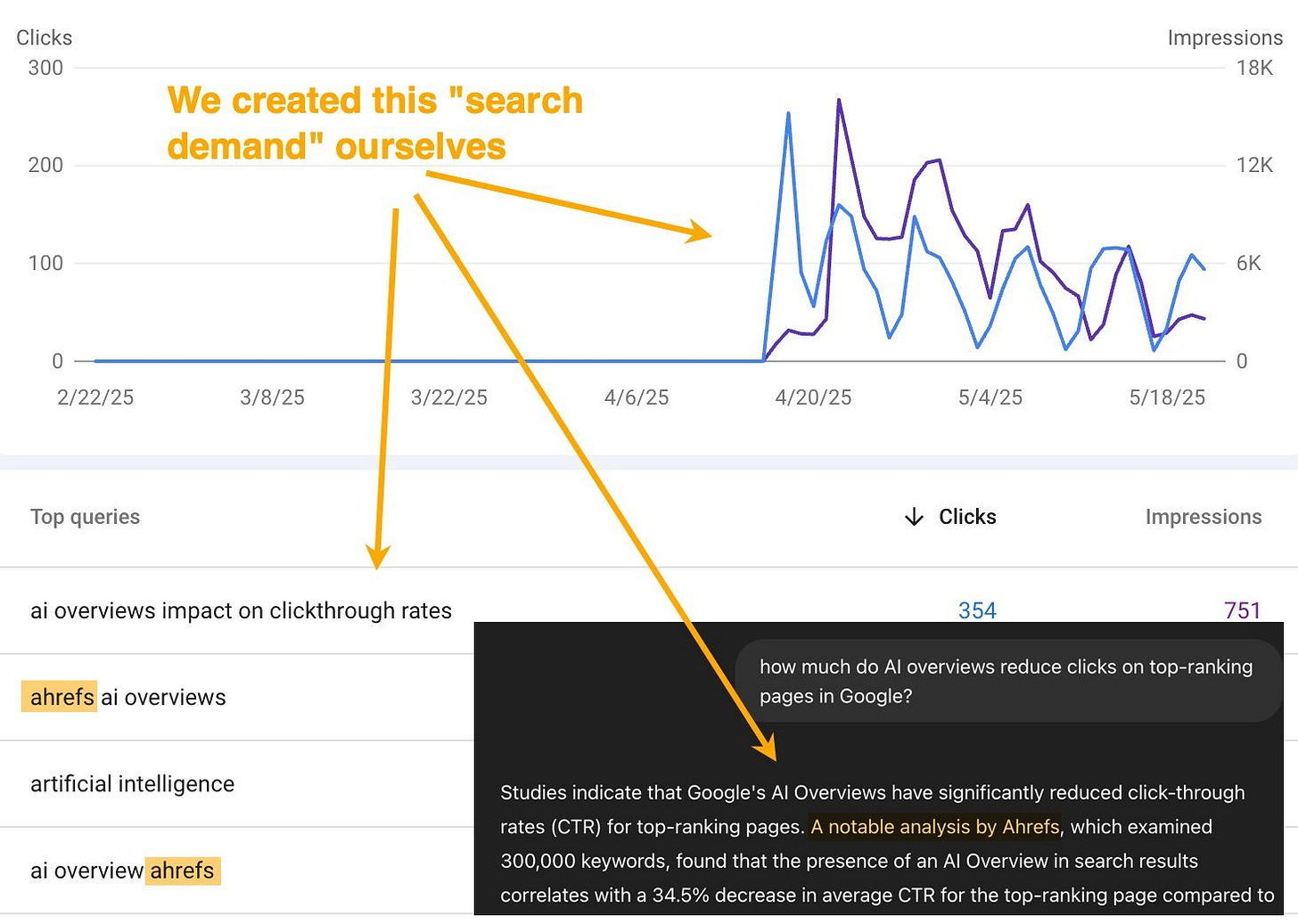Navigating AI Mode for Publishers
AI Mode might be devastating for publishers. Here's how you can try to navigate its treacherous waters.
This may well be one of the defining moments in your career. All of ours. Navigating it calmly and thoroughly will be a real feather in our cap(s).
First of all.
To anyone who lives outside of the UK or is under the age of 35, this probably won’t make a lot of sense. But I’ve been wanting to get some naff old comedy references into my Substack for nearly a year now.
And lest ye forget, it is my Substack.
TL;DR
The fundamentals of SEO are still - wait for it - fundamental.
You have to learn how to build a brand(s). Brand products. Branded tools. Connect with your audience (or build one). Quickly.
Your audience doesn’t ‘spend time’ on Google. They never have. Find where they are influenced and who by.
This is the era of truly original content. It has to be.
Ok, so there are three main questions to cover.
1. What the hell is going on?
A shift in the way users consume information. But this isn’t new.
Zero-click searches have been on the rise for some time. Audiences rarely ‘find’ something new through search. They become aware through other channels and then perform a navigational search in everyone’s least favourite search engine.
With a last click attribution model, you can see why search has been overvalued for some time. This will create far more parity between platforms. Which I think is a good thing.
Oh and the ongoing and systematic destruction of industries and livelihoods by Google. As they try and rewrite the way people use the internet, they have no problem stealing your content and crushing your business. Small publishers first, everyone else next.
2. How long have we got?
A year. Maybe two? Who knows.
AI Mode has now been rolled out in the US, albeit as a secondary platform. If Kevin Indig’s superb AIO analysis is anything to go by, here’s how this will go;
The uptake with younger people will be good (25 to 34-year-olds on mobile are the power users: They pick AIO as the final answer in 1 of 2 queries)
The more jaded among us will be highly sceptical
The type of query matters. For high-stakes queries, users care about authoritative sources. YMYL queries (Google’s own acronym, lest we forget) demand citations.
Once a brand or concept features in the AIO, it stands a higher chance of being trusted by users
So visibility and brand awareness will still matter. But real change takes time. I’m not sure this will be an overnight ‘success’ (I use success in the loosest possible form of the word).
3. What do we do?
Survive.
Diversify your revenue options as much as possible. Build your owned channels to reduce your reliance on search referral traffic. Become as resilient as you can over the next 12 months.
Newzdash CEO John Shehata has a very good guide on how to be resilient as a publisher.
That’s not a very tangible option for most of us in SEO. However, you can instil a level of confidence in your team and senior leadership by staying calm (see the GIF above) and creating a plan. A proper plan.
And that’s where I think I can help.
Three key principles
The way people consume information has been changing for some time (and it’s changing again)
This is the era of ‘original content.’ Uniqueness will be rewarded more than ever.
Google is a navigational engine. The searches are branded. Build brands and awareness elsewhere - in channels where your audience actually spend time.
In a post TOFU/MOFU world where the drab content marketing of old ceases to work - in its current iteration at least - businesses will still need influence and exposure. In fact, they will need this more than ever.
As publishers, you should have an audience. The bigger your owned audience, the better. You will be able to monetise them. Arguably more effectively than ever. Because businesses tangental to you will need it to survive.
A 6 step plan to navigating AI Mode for publishers
I’ve tried to cover everything, but if you think I’ve missed anything out let me know.
1. Don’t forget about good ol’ fashioned SEO
The fundamentals still matter.
Your content needs to be indexed to feature in AI Mode (and AIOs). Remember that LLMs currently cannot render Javascript related resources. If they cannot extract what they need quickly, they will move on.
Google have seen 45% more content on the web in the past two years than the previous. So unless your content adds something unique, you’re at risk.
LLMs and AI Mode use passage level indexing. Answering the right questions. Page structure and semantic HTML are still crucial.
OpenAI uses Bing’s index. AI Mode runs off Google’s extraordinary one.
E-E-A-T. User-first expertise and trust. Things people just cannot get from a word predicting robot. Elements that leverage people’s personal brand.
Topical authority. While keywords still matter, Google's AI understands concepts and relationships between topics. So multi-format content clusters that answer the fucking question is more important than ever.
Authority still matters. A number of these systems use PageRank. Or at least a form of it. So you need to maximise the value of your important pages and highlight your core entities with contextual internal links.
And off-page SEO. Backlinks. Brand mentions. Social shares. Being invested in and making noise in your industry has benefits outside of search. Being close to your industry seed sites is still foundational.
LLMs use structured data. The more complete your page template. The more structured information you share. The better you will do.
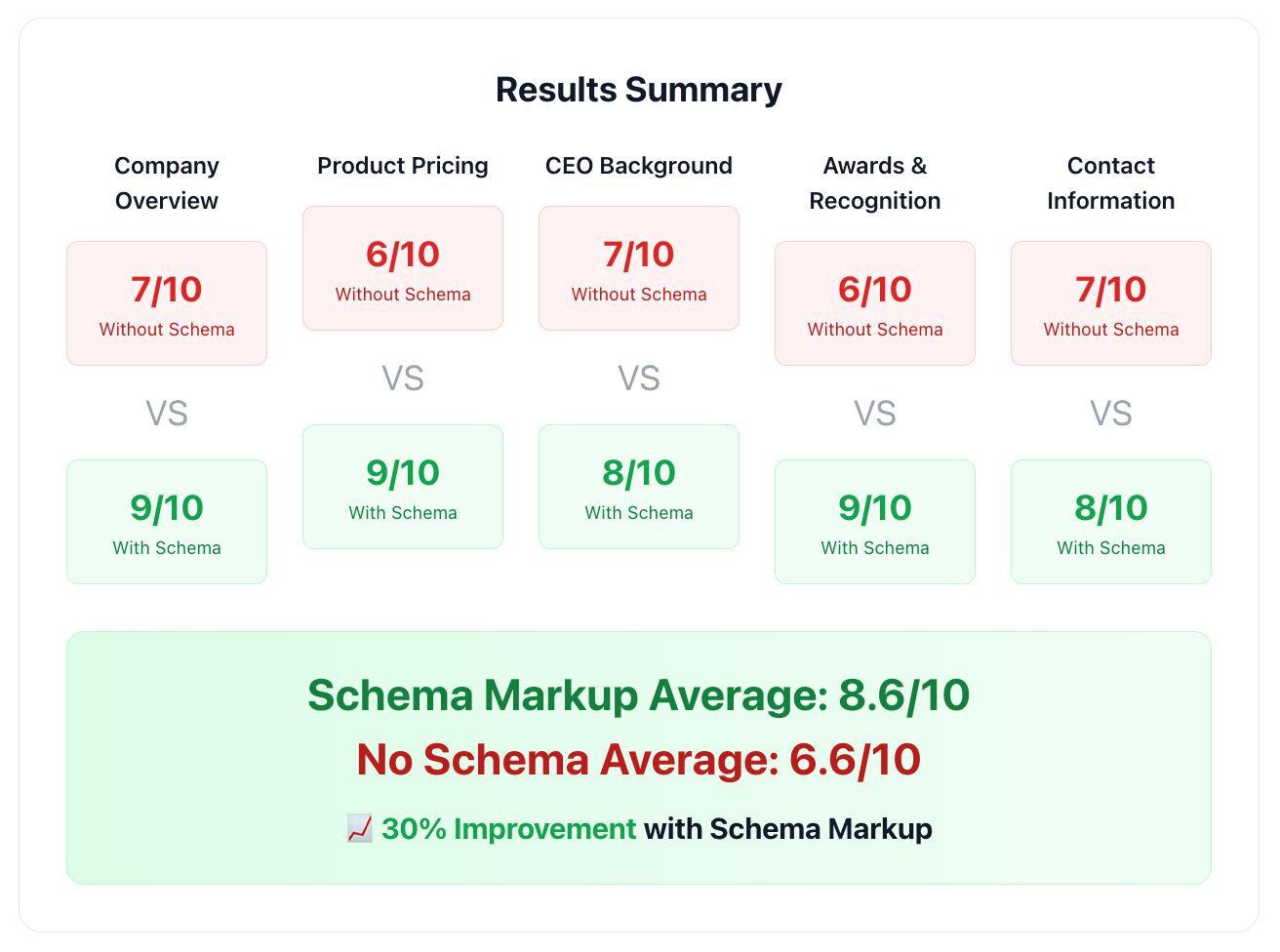
We now have some hard evidence that the addition of schema markup for structured data usage has a significant positive for an LLM’s ability to;
Parse data
Accurately extract information
Return complete information
Stand firm tech SEOs
2. Understand your audience
One unique advantage publishers have (but are seemingly unaware of) is that lots of us have audience teams. Teams where social, search, newsletters and community all interact.
How it should be, right?
I think a huge part of the problem has been the overvaluation of search. For eons. It’s ‘free traffic’ (I hate that saying) and from a last click attribution model, search takes all the glory.
We’ve not exactly dispelled the myths have we?
But the time has come for audience and channel symbiosis. We need each other. We need to know three things. And we need to know them better than the competition;
Who is our audience?
Where do they spend time?
How are they influenced? Who by?
All of this passive data can be found using SparkToro. My upcoming ‘SEO’ tool of the moment. You can break down the above three questions and begin understanding how to influence your audience more effectively than anyone else.
By being where they are. Working with influencers and brands they already trust. Being present in SubReddits they use. On channels they spend time on. Advertising on websites they visit.
Start small. Not all publishers are multi vector behemoths who publish hundreds of articles each day. Lots of us are hyper focused on specific categories.
Which makes crafting a plan much easier.
Build your customer persona
Integrate that with real audience data
Implement a strategy beyond search that targets the specific person
Done. Next.
3. Build a brand(s)
I cannot possibly do this section justice on two fronts. One, I am not well versed enough in brand building. Two, it really warrants a standalone article. Which I will deliver with gusto.
We’re SEOs. We’re not brand builders. Over the years, we’ve become less marketers and more click winners. Content regurgitators.
Grossly unfair to label everyone like that, of course. But it’s been too easy.
So now we need to think big. For me, the key considerations for a brand building and SEO intersection are;
Branded search volume: This needs to go up over time. With 45% of the searches in Google being branded, building navigational traffic gives you a buffer in a ‘yes, we’re stealing all of your content world.’
Backlinks and citations: Google has run off links and clicks for a long time. Because links are still the ultimate signal of trust. Whilst the value of a link has diminished over time, we know that LLMs derive ‘usefulness’ from pages and passages using PageRank.
Personal brands and authorship: People don’t just buy from or trust brands. They trust people. Whilst you can’t force writers to grow a personal brand, you can encourage the right behaviours. Writers who people follow, search for, appear on podcasts and share their content on social media should be rewarded.
Tools and products: Useful, unique elements that exist outside of your text-based ecosystem. That drive branded search. That help you stand out. Memorable products that elevate you as a publisher.
Digital PR: Campaign-based, exciting marketing. I am not so au fait with the digital PR world now. But combining digital PR and more traditional SEO link building was brilliant. We used to identify seed sites and target either the seed site itself or sites that linked to the seed site.

Large scale, repeatable projects that you become known for: Think The Times Rich List as the perfect example. It’s synonymous with the brand and it makes waves. Year, after year, after year.
Brand consistency. Tone of voice. Having an opinion. You have to be a brand. There’s no room in an AI search driven world for brands that just answer any and every question out there with less flavour than a 1950s dinner. You have to be somebody. You have to have and speak to an audience.
If you’re still dining off ‘what time is’ or ‘how to,’ you’re in trouble. This is the era of original content. Of real brands with real audiences.
Still spinning content so TOFU, even the vegans are turning you down.
4. Set new goals
Rule 1. You can’t just forget about revenue and traffic.
No, we didn’t make any money, but 700 people saw our explainer on Tim Henman’s vegetable patch.
Not going to cut the mustard, is it?
I don’t think a shake up is all a bad thing. We need to find a way to trade on visibility and influence. We need to see how visible we are in LLMs and AI Mode. We need to see how frequently we are cited. You need to see that data so you can reverse engineer what’s going on.
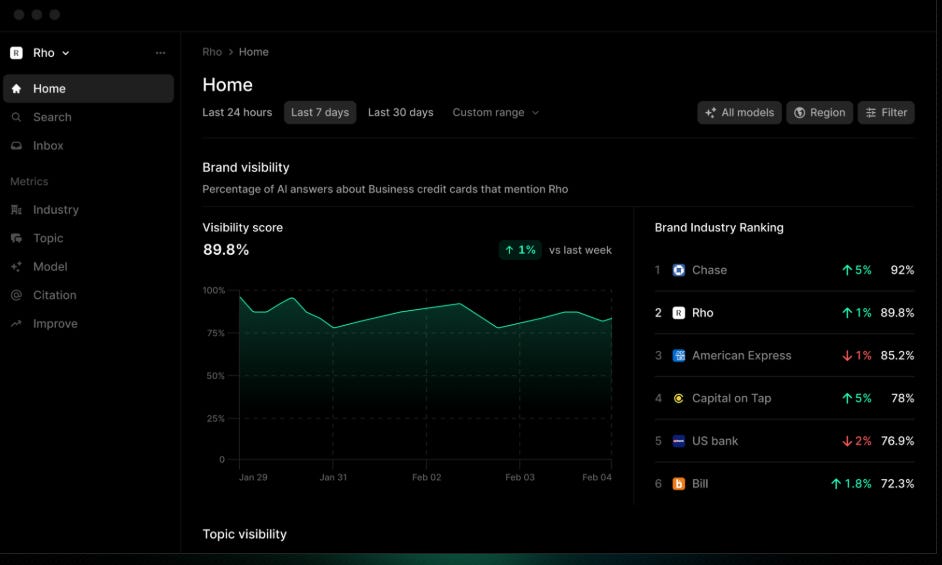
It’s harder to convey value based on visibility. But social guys have mastered it. Well, sort of. Not a very good channel for the CFOs, but hey ho.
And I hate to break it to you, but we already have impression data. And it is shooting up. Granted, clicks are going in the opposite direction, but that’s one infinitesimally small positive.
This is a very good article by Duane Forrester on setting some alternative goals for search in AI Mode. In my opinion;
AI visibility and citation count (chunk retrieval frequency if you want to be fancy)
AIO citations
Answer coverage
All worth investigating.
5. Understand how LLMs (and AI Mode) works
The most important thing here is to not be overawed by the new technology. Or those trying to grift the ‘complexity’ of AI mode onto you and their bottom line.
The details of ‘ranking’ - even in a probabilistic world - are just SEO. I’ve read enough. I’ve seen enough data. It’s new. It’s shiny. It’s expensive. It should open up doors for you if you do it right. It’s a cross-selling opportunity in some capacity.
Hell, it should even make you more money.
But the fundamentals are almost exactly the same. Hence why you shouldn’t forget about the fundamentals of good SEO.

Here is my admittedly almost entirely second hand take on how AI Mode specifically works;
AI Mode is low friction. We as publishers, should create high trust interactions. But this is far more convenient. Younger generations will adopt it en masse. We need to adapt to that if the audience is right.
Ranking is now probabilistic. Not deterministic. This means our content doesn’t go out the way it comes in. It’s interpreted. And AI Mode is memory aware. So who you are matters.
Pagerank is still a fundamental factor. Brand building. Digital PR. Personal brands. All will grow in popularity. You need to understand where you are strong and where you are not.
Personalisation, memory, MCP and agentic capabilities allow Google to pull everything on the web into its own interface. Diversifying into a multi-modal content strategy is the best approach.
Clicks will die. But the quality of clicks should improve. We see this with our own data. New tests with much improved external linking (you know, to the people who wrote the fucking stuff) from Google through to third party sites show a brighter future.
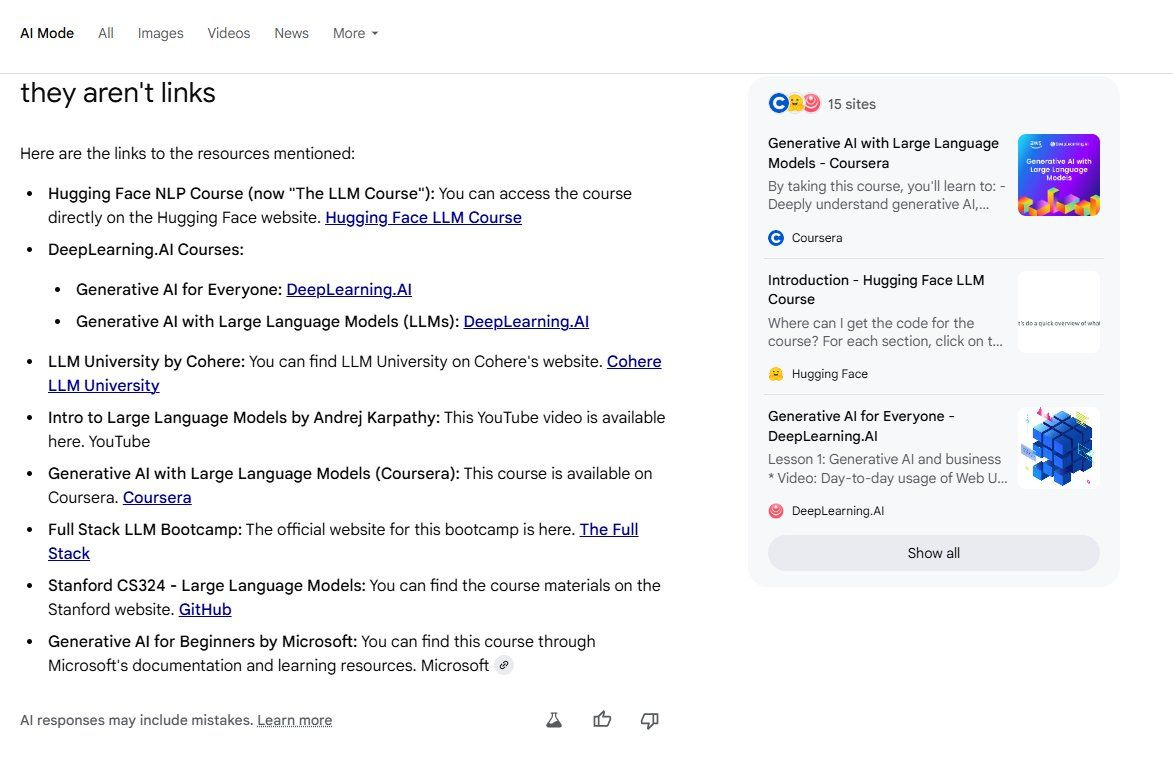
The query fanning approach taken by Google is IMO, nothing new. Or at least, nothing revolutionary. Answering the right questions at the right time. But passage level retrieval is a little bit shiny.
Some chunks are cited, many are not. Claude leaks revealed the most important factors for getting links cited are the originality of content, how well structured the content is and how closely it fits with the user’s needs
Absolutely worth reading Mike King’s very good guide to AI Mode and Andrea Volpini’s look at the query fan out approach (complete with a query fanning simulator).
I’d be remiss not to plug my own look at AIOs too.
6. Be unique. Stand out. Be better.
Do you know who the big winners will be in the ‘search everywhere’ era?
Marketers. People who understand people. If you keep going down the search volume over everything route, you’re toast.
But if you lean into brilliant original content. Content that speaks to your audience. That solves problems across multiple formats. It’s two fingers up to AI Mode. You’re laughing. Not howling, but smirking.
But you can’t just hit publish anymore. That’s not enough. You’ve got to build social and owned channels. Encourage personal brands. Partner with relevant content amplifiers and individuals with influence in your industry.
Consider everything. Make smart business decisions. Don’t write content for content’s sake.
‘Do Google still need us?’
I’ve seen that question asked in multiple forums and I’m conflicted. Lots of search-reliant publishers are going to die. Particularly brand-lite versions.
But they need publishers. They need expertise. They need news. Otherwise, what the fuck are they going to train their models on?
But if the tech bros are anything to go by, their inflated sense of self raises serious questions here.
And my main concern is that when Google need us, they bring us into the fold. They gave us the Core Web Vitals report. Admittedly, so we could just clean the web up for them and save them hundreds of millions on free consultancy work and crawl efficiency.
But they still brought us in. Crime scene cleaners.
There’s no inkling we’re going to get anything for AIOs or AI Mode. Nothing. And that makes me think they think they don’t need us. We can do this without you.
And that’s concerning.
If I can help, let me know
Any questions I might be able to help with just let me know. I’ve been as consumed as anyone about this, so nudge me on Linkedin, Substack etc etc. Always happy to discuss.






